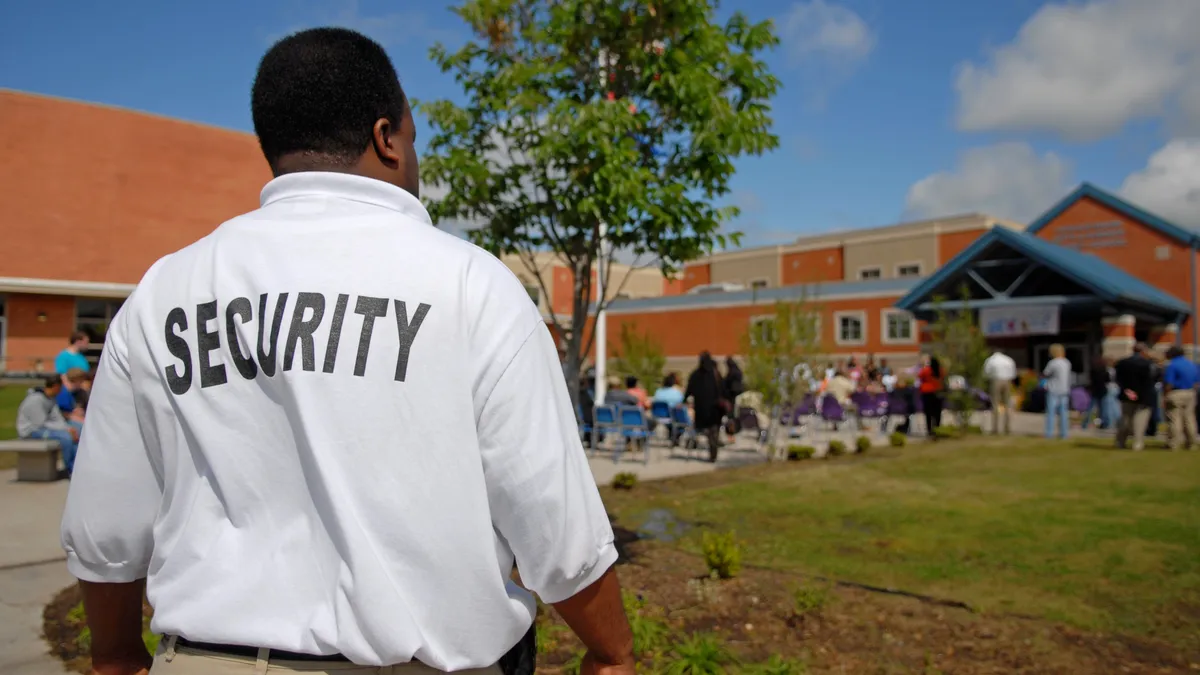Dive Brief:
-
A 15-member commission investigating last year's school shooting at Marjory Stoneman Douglas High School in Parkland, Florida, has recommended arming teachers and increasing spending on mental health resources, according to a report released last week. The panel also said multiple security breaches and protocol issues within the school system and local law enforcement were partially to blame for the massacre.
-
The Broward County Public Schools security program didn't keep the shooter from entering the building, the report said, and there was no clear plan in place for locking down classrooms. As a result, the findings urge schools to adopt stronger emergency plans and lock doors when they're not being used, and that state law should be changed to allow properly trained teachers to carry guns.
-
"We can do more and we can do a better job of ensuring the safety of students and staff on K-12 school campuses," the report says. "Safety and security accountability is lacking in schools, and that accountability is paramount for effective change if we expect a different result in the future than what occurred at Marjory Stoneman Douglas High School (MSDHS) on February 14, 2018."
Dive Insight:
Since President Donald Trump introduced the possibility of arming teachers about a week after the Parkland shooting, educators have come forward to share their thoughts on the proposed policy. Some teach at schools that already do arm them with weapons, and they say this is a step forward in protecting students against threats. Others, however, say it's a bad idea and that they'd prefer other tools — including more funding and mental health resources — in attempting to make their schools safer.
And many parents and students agree: A March survey found that most Americans — including teens — think arming teachers will make schools more dangerous.
Randi Weingarten, president of the American Federation of Teachers (AFT), which has some 1.7 million members, spoke out in a letter to the president, writing that the "proposal to arm teachers not only would make our children’s classrooms less safe, but also is not what educators and students want."
She added: "Schools need to be safe sanctuaries, not armed fortresses."
The reluctance some teachers have about being armed stems from several issues. For one, many teachers say their jobs are to teach, not to be security guards. On top of that, even with properly trained teachers, there's always a chance that the weapon could be misused, whether by an educator or by a student who somehow gets access.
And, as the commission found in the case of Parkland, a school system might not have a sustainable and protective school security plan to begin with, potentially leading to an even more chaotic and confusing situation with guns added to the mix.
There's also increasing concern about whether schools are becoming too "hard." School security companies and gun advocates say hardening schools will do good in protecting students and staff members, but critics say that tramples an important aspect of a school — its nurturing environment.
Striking a balance between building a safe school and a building that promotes learning and creativity is a difficult task, but schools nationwide — including Sandy Hook Elementary, which was also rocked by a school shooting in 2012 — have taken on the challenge and proven that safety and innovation aren't mutually exclusive. And, in most of these cases, these redesigns didn't include guns.







 Dive Awards
Dive Awards






